Someone'll Pay: BMW Probably Won't Stop at the 8 Series
Like a grinning child whose dad is pushing them on the swings, BMW wants to go higher. Higher!
In both price and model designation, BMW knows there’s loftier ground to claim — and buyers willing to fork over the contents of their bulging bank accounts to make it profitable. That’s why the looming 8 Series, a luxurious coupe bearing a resurrected name, likely won’t be the pinnacle of Bimmer’s range for long.
Toyota and Honda Have Good Reason Not to Abandon Sedans
Ford’s already brought the axe down on all but one of its car models, and General Motors looks ready to do the same. Other automakers, however, know that ditching sedans would mean abandoning key groups of customers.
For Toyota and Honda, models like the Camry and Civic resonate far more among some demographics, and leaving that segment risks losing those buyers to other brands. Not everyone wants a crossover. Among Asians, Hispanics, and African-Americans, four Japanese nameplates keep popping up at the top of the most-bought list, but one domestic model poses a growing threat.
Be Thankful the U.S.-Market Nissan Kicks Has Standard Stability Control
A reader sent us a link to a Mexican handling test of Nissan’s new, front-drive Kicks crossover, and one glimpse of the vehicle’s “moose test” will have you on your knees, thanking the deity of your choice for electronic safety nannies.
We all know that high-riding vehicles suffer from an inherent top-heaviness, born of a high center of gravity and compounded by long suspension travel. As SUVs grew in popularity in the ’90s, a slew of alarming videos arose showing popular SUVs flipping or riding on two wheels while swerving sharply to avoid a object, then recovering. The moose test is the ultimate test of a vehicle’s stability, and it’s the test most likely to see a tall vehicle — thanks to rapid weight transfer — roll more than it yaws. Sometimes with disastrous results.
The advent of electronic stability control was a godsend for these types of vehicles, helping overcome much of the roll and yaw, but, while it’s mandated in the U.S., Canada, and Europe, in some markets it’s absent from certain models or trim levels. Take a look at what happens without it.
July 2018 Midsize Sedan Sales: Toyota Camry Finally Slips Into the Red
Last year’s release of the radically revamped 2018 Toyota Camry lent buoyancy to a model seen as the troubled midsize sedan segment’s most resilient nameplate. It has history, name recognition, and a stigma for no-nonsense comfort and reliability. Could you ask for anything more?
And so, as other sedans, including the equally fresh Honda Accord, started falling away, the Camry retained its sales volume, finishing the first half of 2018 with a slight year-to-date increase. July brought bad news, however. While the Toyota brand performed worse than the industry average last month — sales fell 6 percent, year over year — it was passenger cars that earned the brand its volume loss.
And even the Camry’s partly to blame.
Britain's Auto Industry Foresees Doom Without EU Deal Before Hard Brexit
Mike Hawes, chief executive of the Society of Motor Manufacturers and Traders (SMMT), Britain’s main industry group, claims automakers were becoming increasingly concerned with the nation’s departure from the European Union. Prime Minister Theresa May wants a solution that would allow Britain to maintain strong trade ties with the EU while allowing her country to maintain autonomy, but hasn’t found much success.
U.S. President Donald Trump claims a deal with the United Kingdom is absolutely possible, saying the relationship between the two countries is “the highest level of special” late last month. But he also noted that the EU would complicated matters if Britain adhered to its trade laws after Brexit, which is just eight months away.
The European Union doesn’t seem to want to let Britain go, and is nudging the country to stick to its rules by not venturing out to make its own trade arrangements. Critics say this effectively makes the island nation a “vassal state” to the EU, completely defeating the point of Brexit. However, many are fearful that leaving the union and ignoring its mandates could have negative repercussions in the long term — especially in regard to finance and trade.
QOTD: Are There Any Collectibles Amongst the Rubble?
Monday’s QOTD post by Matthew Guy inquiring about some of the seriously overpriced metal on today’s collector car market got me thinking. And what it got me thinking about was the present state of cars, and if there’s going to be much worthy of collecting at a later date.
We’re in some dark times, automotively speaking. Allow me to explain.
Ford Commits $4 Billion to the Future, Creates New AV Subsidiary
Ford Motor Company announced Tuesday that it has formed formed a subsidiary — Ford Autonomous Vehicles LLC — devoted entirely to autonomous vehicle development. That’s probably the catchiest name we’ve heard since Bank of America Corp or Waste Management Inc. However, you don’t need a clever moniker when you’re dumping $4 billion into a project, which Ford intends to do through 2023.
With all the current drama and distrust surrounding self-driving cars, we thought there was a chance automakers would cool off on pushing for it so aggressively. But while some OEMs curbed their futuristic rhetoric ever so slightly, practically everyone else kept the pedal to the metal — an analogy that will lose all meaning once computers drive us everywhere.
Let’s see what The Future™ looks like in and around Dearborn.
Battle on the Border: We'll Fire Back If You Pull the Trigger, Canada Tells U.S.
The thought of the U.S. imposing an import tax on Canadian vehicles and auto parts was once unthinkable, but the possibility now exists. Unable to ignore it any longer, Canada now says it will impose tariffs on American-built vehicles should the U.S. act first.
Canada’s contribution to the continent’s automotive landscape isn’t what it once was, but it’s still formidable when viewed in isolation. The Great White North, which continued building Studebakers for two models years after South Bend went dark, houses assembly plants operated by the Detroit Three, Honda, and Toyota.
With the glaring exception of pickup trucks, Canada would find itself with a (limited) crop of remarkably practical tariff-free vehicles if the taxes went into effect.
Feds to Big Auto: Spill It
The U.S. Commerce Department wants automakers to whisper in its ear. And by whisper, we mean fill out a 34-page questionnaire detailing all their secrets — the nitty gritty of product planning, suppliers, and finances not already disclosed in public filings — under threat of financial penalty or imprisonment.
As one would assume, this latest chapter in the Commerce Department’s investigation into the possibility that imported autos pose a national security threat to the U.S. isn’t going over well.
The Best Ford Focus Sedan Is the One (Almost) No One Wants
Think back to the very early days of the previous decade and memories of awful mainstream rock compete with visions of the first-generation Ford Focus sedan. It was everywhere, and quite a few people has quite a few problems with theirs. By the end of the decade, however, those issues were mainly in the rear-view, as Ford was busy preparing to heap dual-clutch transmission woes onto its customers.
Now, the Focus sedan’s officially dead as the Blue Oval embarks on a nearly car-free voyage to the future. Only the faux crossover “Active” version of the next-gen 2019 Focus stands to see any customers in North America, but it’s a privilege reserved only for citizens of the United States. Canucks need not apply.
Too bad, as the next-gen Focus sedan’s a looker. Its designers aren’t exactly thrilled that so many countries have taken a pass.
Genesis Sales Slip for Sixth Straight Month As Upstart Brand Readies Another Sedan
The Genesis premium brand is a good idea cursed with unfortunate timing. Hyundai’s luxury arm launched just as U.S. passenger car sales gunned the throttles and pushed forward on the yoke.
Despite the glowing reviews, up-front value, and attractive looks enjoyed by both the G80 midsize sedan and G90 full-sizer, the American buying public has never been more averse to the thought of a sedan purchase. A two-sedan lineup in this environment? That’s collar-tugging stuff.
As the Genesis brand approaches its second birthday, U.S. sales have now slipped into three-digit territory for the first time in its brief history. And what’s that on the horizon? Oh, it’s another sedan.
The Ford Fusion Will Ride Again, but You Might Not Recognize It: Report
The attractive Ford Fusion seems to be on track to linger around a bit longer than its passenger car stablemates, even in its current form. Focus, Taurus, and Fiesta production should wrap up by the middle of next year, with the Fusion’s end date currently shrouded by haze. All signs point to the current midsize sedan ending its run in 2021.
But that doesn’t mean there isn’t a new Fusion waiting to replace it.
World's Cheapest Stripper Bites the Dust; Disinterested Public Barely Mourns
While our Ace of Base series delights in revealing just how bargain basement a mainstream vehicle can get, none of those rides hold a candle to the spartan purgatory that was the Tata Nano.
Billed as the world’s cheapest car upon its release in 2008, the Indian-market four-door was tailor-made to lure that country’s growing market of would-be vehicle owners off motorcycles and into a car with two cylinders, 37 horsepower, and a rear hatch that didn’t open.
Not unexpectedly, the vehicle quickly developed a stigma.
Mazda's New Engines Will Test Whether Buyers Can Still Stomach a 'Car'
Showroom visitors in June continued carrying Mazda in a positive sales direction, even as those same buyers continue to shy away from the brand’s car portfolio. Hold on — that’s not necessarily correct.
On a year-to-date basis, all of Mazda’s passenger cars sit in the red, but the sensuously styled Mazda 6 sedan, fresh from yet another, um, refresh (this one designed to push the model upmarket a bit) barely qualifies. Since the massaged 2018 model went on sale in April, year-over-year sales increases in that month, May, and June mean the model now posts only a 0.9 percent YTD sales decrease. Almost back in the black, for this year, anyways.
Despite it outward appearance staying nearly the same, the 2018 refresh brought a long-awaited turbocharged engine to the Mazda 6 line. As well, there’s upgraded powerplants destined for the two remaining cars in Mazda’s barn. Nothing sweetens the pot like extra power.
An Exhaustive List of Everything Automakers Want You to Know About Trump's Import Investigation (Hint: Higher Prices, Fewer Jobs)
It’s no secret that the automotive industry has come out universally against the Trump administration’s proposal to increase import tariffs. Numerous manufacturers weighed in independently on the issue as trade groups rise in opposition to the U.S. Commerce Department’s national security investigation.
The industry’s claim that imported vehicles don’t pose a risk to the wellbeing of the United States seems to have fallen on deaf ears. Threats that the prospective import duties on parts could result in fewer, more-expensive automobiles being produced domestically have been heard — and rebuked — by President Trump.
“What’s really going to happen is there’s going to be no tax,” he told Fox News in a weekend broadcast. “You know why? They’re going to build their cars in America. They’re going to make them here.”
However, automakers, parts suppliers, and even local governments have submitted comments to the Commerce Department ahead of the hearings scheduled for July 19th — and they’re all incredibly negative.
Ghosn Desperately Wants All This Renault-Nissan Merger Talk to Stop
Renault-Nissan-Mitsubishi Alliance Chairman Carlos Ghosn is busy trying to convince shareholders of Nissan and Mitsubishi stock that Renault isn’t aiming to take over its Japanese partners. It’s proving to be no easy task.
While Ghosn has been clear of late that a merger isn’t in the works, he’s simultaneously adamant that the relationship between the companies must become “irreversible” before he retires from the industry in 2022.
Always a Bridesmaid? FCA Could Be Going It Alone After All
Last week’s report in the Asia Times, citing unnamed sources, laid the foundation of a rumor that Hyundai has its eyes on Fiat Chrysler as a potential takeover target. FCA CEO Sergio Marchionne’s history of attempting courtships with other major automakers only served to bolster the idea. If General Motors and Volkswagen seemed so attractive, why not Hyundai?
Forget about it, claims a Hyundai spokesman.
Just How Bad Are Car Sales Going to Get?
As the industry stresses about the new vehicle market taking it easy for the foreseeable future, there’s one aspect of it that’s of particular concern: car sales. After dominating the field for so long, passenger car sales fell below half of the market just a few years ago. That gap continued to widen through 2018.
Automakers responded by shifting output towards utility vehicles and crossovers. Ford ultimately decided to abandon the majority of its passenger cars in the United States as other manufacturers scramble to adjust their lineup to account for consumer tastes. However, these changes are also helping to push shoppers further away from cars. Bank of America Merrill Lynch estimates that 71 percent of vehicle introductions for the 2019 through 2022 model years will be light trucks.
Some automakers still believe cars hold an importance that’s not to be ignored. True, some models still sell incredibly well. But the general assumption is that they’ll continue losing relevance in the coming years. It’s likely to take another energy crisis or major shift in consumer preference to turn back the tide of crossover vehicles.
Can We Interest You in a Cruze? GM Claims Ford/FCA's Loss Is It's Gain
It’s gotten to the point where those seen buying a traditional sedan or hatchback are viewed as being unlikely candidates for procreation. After all, you can’t raise a kid in the absence of a vehicle belonging to a segment where “rows” matters more than horsepower or fuel economy. I blame Lee Iacocca for sparking the non-car trend.
Anyway, with Fiat Chrysler out of the small and medium-sized car game, and Ford eager to follow, General Motors feels this new automotive landscape could work to its advantage. Never mind all that doom and gloom (and some very GM-centric rumors).
Hyundai's Getting Ready to Pounce on Fiat Chrysler, Report Claims
Fiat Chrysler Automobiles won’t comment on a report claiming Hyundai Motor Group plans to launch a bid for the automaker, but that’s what sources with knowledge of the matter tell the Asia Times.
The sources claim HMG CEO Chung Mong-koo is biding his time, waiting for FCA’s stock to fall before moving forward on the potential takeover. Reportedly, Hyundai could launch the bid within months.
Another Model Loses Its Manual Transmission
There’s probably no shortage of eyeball rolling over this headline, as manual transmissions wouldn’t be fading out of the marketplace if buyers actually desired one.
Once upon a time, a stick-shift guaranteed better fuel economy, but those days are pretty much gone. It was also a great way to reduce the entry price of a particular model, but automakers’ thirst for larger margins and fewer configurations means what few base, stick-shift models roll off the line are often hidden from consumer view in the real world. This only serves to sink popularity even further.
The ongoing trend has apparently reached the Honda HR-V, which undergoes a mild refresh for the 2019 model year. As part of this update, say goodbye to the six-speed manual in Honda’s smallest ‘ute.
Detroit Auto Show Organizers Make It Official: January's History
There’s only one more North American International Auto Show to go before America’s premier automotive event trades its bitter winter winds for temperate climes.
After months of rumor and speculation, the Detroit Auto Dealers Association — the organization behind the show — declared Thursday that it will no longer hold the event in January. After the 2019 show, journalists will no longer be able to watch icebergs form on the Detroit River.
Love Tariffs? Prepare to Cough up an Extra $1,800 for a Camry, Toyota Warns
Toyota’s not going silently into a potential future where tariffs are as prevalent as man buns and tattoos in a brewpub. In its submission to the U.S. Commerce Department, Toyota wants the government to know it’s a standout business, and that a tariff on imported automobiles and auto parts would backfire.
Even for vehicles built in the U.S., American buyers would face a steep price hike, Toyota claims. Care to fork over an additional $1,800 for a Kentucky-built Camry? Meanwhile, a Canadian supplier association representative warns of “carmageddon” if the tariffs come to pass.
Bad Vibes: Ford Takes on Tesla After 'Morgue' Comment
Who doesn’t love a battle between automakers? Personally, I find the upper-crust sniping between Rolls-Royce and Lagonda both charming and hilarious, but the fun ramps up when the fight involves builders of more accessible products.
In a Wall Street Journal article published late Wednesday, Tesla CEO Elon Musk copped to sleeping under his desk near his Fremont assembly plant’s body shop, part of an all-out effort to reach a lofty (and delayed) June 30th production target. Some of the plant’s assembly work has moved into a large outdoor tent. Old-fashioned manpower has been called in to help crank out vehicles. This, from an automaker that not long ago expressed worry that wind resistance might slow down the pace of its futuristic automated assembly line.
Musk admitted he’s made some mistakes. There’s a tent, after all. But that didn’t stop him from telling the reporter, “I think there’s a good vibe—I think the energy is good; go to Ford, it looks like a morgue.”
Ford was quick to respond.
Cullinan II? Absolutely Not, Says Rolls-Royce Boss (With a Big Asterisk)
As connoisseurs of fine gemstones all know, the world’s largest fine-cut colorless diamond is the Cullinan, otherwise known as the Star of Africa. It was only natural that Rolls-Royce chose the name of the largest of the Crown Jewels for its high-sided car (or whatever term it uses for its new SUV).
Also contained in that vast London collection is a lesser stone, the Cullinan II, but don’t expect Rolls-Royce to bend to industry norms and craft a second, smaller SUV for lesser-monied buyers. That’s just not in the cards, the automaker’s boss claims. Unless, of course, it is.
Gotta go with the flow, you know.
Crime Pushes Bulletproof Vehicle Production to Record High
It’s an exciting time to be a manufacturer of bulletproof cars. Violent crime in Latin America is booming right now. For example, growing levels of drug-related violence made 2017 Mexico’s most murderous year on record, based on government statistics.
The problem has resulted in a 10-percent increase in demand for the nation’s car-armoring services this year, according to the Mexican Automotive Armor Association. Still, Mexico’s 3,284 bullet-resistant cars are nothing compared to the 15,145 vehicles armored in Brazil last year. That country holds an even higher murder rate per 100,000 inhabitants.
The armoring industry expects to see a 25 percent jump this year, as both governments predict further increases in crime. As a consequence, some automakers have decided to simply start offering from-the-factory protection to eliminate the customer’s need to seek bulletproofing elsewhere.
McLaren CEO: 'Weight Race' Should Replace Horsepower War
While it hasn’t been without reprieve, much of our automotive history has been occupied with manufacturers perpetually hunting for more power. The pursuit is a no-brainer. A motor releasing more energy than its rivals means a faster car and more bragging rights. Nowhere is this better epitomized than the muscle car era, where domestic automobiles morphed into ludicrously overpowered machines that we still look back upon with fondness.
The power wars continue into the present day. Dodge’s Challenger SRT Hellcat and Demon dragster are a prime examples, but Ford now hopes to rival the Hellcat with its Mustang Shelby GT500. Chevrolet made a valiant attempt with its Camaro ZL1. The quest for power spills over to everything from utility vehicles to hypercars, but there are other ways to go about building a swifter vehicle. You could always place it on an aggressive diet.
Ailing Motorcycle Industry Could Be Canary in Coal Mine for Automakers - Part Two
Last week, we discussed how the motorcycle industry’s total failure to entice new riders for over a decade has come back to bite it in the ass. Two-wheeled ownership declined drastically in the United States after the Great Recession and never really bounced back. Blame a disinterested population of youngsters with less discretionary funds and few entry-level options to consider.
I speculated that automakers could be on a similar path, despite the passenger car segment being more of a necessity for average commuters and less apt to collapse outright. But that isn’t to presume they might not be subject to similar pitfalls, and we’ve a new one to consider. Harley-Davidson, which serves as the poster child for the motorcycle industry’s current crisis, recently announced it will end all U.S. production of motorcycles sold in Europe.
Those bikes will now be manufactured overseas. The company said in a regulatory filing with the U.S. Securities and Exchange Commission that retaliatory tariffs levied by the European Union on motorcycles exported from the U.S. jumped from 6 percent to 31 percent. Harley-Davidson’s already expensive products come at an additional premium in Europe, and the the company estimates the new fines will add another $2,200 per motorcycle, on average.
Jaguar Land Rover Mimics European Rivals, Promises an EV Version of Every Model - but Only If You Really Want It
Volvo wanted to bring the sometimes terrifying concept of an electric car out of the shadows and into the mainstream, so it promised fully electric versions of new models launched after 2019. These vehicles will supplement the brand’s hybrid and mild-hybrid offerings.
No longer will the electric car be a standalone model (or model line) with unfamiliar, oddball styling. Mercedes-Benz and BMW agree with this approach, to some degree. Others, like Volkswagen, do not.
Now, Jaguar Land Rover’s joined the fray. The British automaker just announced plans to boost investment by 26 percent over the next three years — an extra $18 billion — to create EV versions of its existing vehicles. That doesn’t mean you’ll get the clean, green vehicle of your dreams, though.
Pesky Arrest Issue Has Audi Thinking America for New Car Launch
Audi had hoped to unveil a new challenger to Tesla’s electric throne at a Brussels marketing event, but the ill-timed arrest of its former CEO forced the automaker to shelve those plans. Rupert Stadler remains in custody, casting a dark cloud over the brand and the vehicle its engineers spent years developing.
What to do? Apparently, the solution involves bundling the car into a plane and sending it to America.
Is the New Honda Insight the Perfect Honda Hybrid Two Decades Too Late?
Attractive. Well received. A winner on paper. Technologically advanced. Badged with a logo that keeps producing record sales numbers.
One would assume that this is all that’s needed for the Honda Insight to be a raging marketplace success, at least in 1999.
1999 this is most certainly not, which highlights one glaring problem: the 2019 Insight is an attractive, well-received, impressive-on-paper, technologically-advanced Honda sedan.
Sedan. Sedan? Yes, sedan.
Wagons Ho! What's Going on With the Station Wagon/Shooting Brake/Estate Car Market?
Ugh, you say. Wagons. A painfully uncool body type you swore off during childhood and haven’t reneged on since. A body type drooled over and feted by journalists who never put their meagre income where their mouth is. Yes, wagons. They remain part of our our automotive landscape, just a vanishingly small part of it.
But who’s buying them, and where? We have the answers.
Tax Credit Blues: Automakers Grimly Await a Looming Phase-out
Should Tesla hit its vaunted 5,000-Model-3s-per-week production target at the end of this month (a figure that means nothing if it can’t be sustained over the long term), the electric automaker faces another hurdle: the impending phase-out of the $7,500 federal EV tax credit.
While Tesla isn’t the only automaker staring down the barrel of this incentive loss, it’ll be the first to cross that line. Estimates place the phase-out point in July, though the taps only begin turning off two quarters after the automaker hits the 200,000 plug-in vehicles mark. Unlike some of its its electric rivals, however, the impact on Tesla won’t be as painful.
Take Note, Hollywood: Germany Cancels Prestigious Auto Awards Due to Criminality, Awkwardness
The organizers of televised U.S. awards shows, who annually serve up a night of lectures, sermons, hypocrisy, and guilt for an increasingly small audience, should realize that the show doesn’t necessarily have to go on.
It’s certainly not going on in Germany. Axel Springer, a top publishing house for numerous German media sources, including AutoBild, has now wrestled the prestigious Golden Steering Wheel award out of everyone’s hands. There’ll be no thanking of grade school teachers by auto execs this year. Blame, well, the auto industry.
End-of-term Report: 37,000 Miles and Three Years in a 2015 Honda Odyssey EX
We weren’t the typical minivan buyers. Yet with only one child (at the time), and desirous of full-size pickups, and frequent travellers of off-road paths not designed for an especially low-slung vehicle, we acquired a new 2015 Honda Odyssey EX in June 2015.
Three years and 37,000 miles later, after mountains of dog hair and many pounds of cracker crumbs and sand from a couple dozen beaches proved the merit of the OEM floor mats, our Odyssey’s odyssey is complete.
Do minivans still make sense in 2018? Do Odysseys hold up to the rigors of a young family’s life? And was it worth paying a premium for America’s favorite (retail) van?
Ailing Motorcycle Industry Could Be Canary in Coal Mine for Automakers
If you think car enthusiasts are a dying breed, you should take a look at motorcyclists. The two-wheeled industry is in serious trouble. A total failure in marketing occurred over the past decade. New riders aren’t coming in fast enough to replace the glut of Baby Boomers rapidly aging out of the market, and there’s a looming paranoia that self-driving vehicles could push bikes off the road entirely.
In 2017, U.S. motorcycle sales were down 11 percent, and no company was hit harder than Harley-Davidson. The brand has the oldest consumer base and has repeatedly failed at recruiting younger riders. While it builds a fine product, it’s not one that appeals to millennials. This generational cohort proved hesitant to engage in motorcycling as a pastime — a situation not helped by having less disposable income than Generation X or the Boomers did at the same stage in their lives. Young women are also poised to start out-earning young men, and few brands have successfully tapped into the female demographic.
Korea Takes Top Three Spots in Initial Quality Study: J.D. Power
This wouldn’t have happened in the late ’80s, that’s for sure. J.D. Power’s 2018 Initial Quality rankings, amassed from problems reported by owners over the first 90 days of vehicle ownership, shows the area south of the 38th parallel as the Land of Least Annoyance.
The fresh-faced, fledgling Genesis brand took the top spot in this year’s rankings with 68 problems reported per 100 vehicles, followed by Kia in second place (72 problems) and Hyundai in third (74 problems). You might say Hyundai (Motor Group) excelled.
Train Station 2.0: Ford's Corktown Redevelopment Plan Unveiled, Won't Replace Dearborn
All eyes were on the now Ford-owned Michigan Central Station in Detroit’s Corktown neighborhood on Tuesday morning, as the automaker formally announced its plan for the derelict building and surrounding neighborhood.
Ford Motor Company recently took the century-old structure, abandoned since 1988, off the hands of its longtime owners, the Moroun family. There’s still no dollar figure attached to that deal, but that’s not what Tuesday was about. Ford’s plan, ambitious and big on vision, breaks down as this: there’ll be 2,500 Ford workers employed in the Corktown neighborhood, tasked with developing autonomous vehicles and related tech. The towering train depot, once restored, will serve as the nerve center.
Joining those employees in Ford-owned buildings scattered around the site will be an equal number of employees working for partners and suppliers, or so Ford hopes. The automaker’s aiming for a miniaturized version of Silicon Valley clustered around Michigan Avenue.
Seismic Activity Hampering Japanese Auto Production
A strong earthquake shook western Japan on Monday morning. The 6.1-magnitude quake destroyed property, left tens of thousands without power, stranded commuters, and disrupted Osaka’s industrial sector. Honda, Mitsubishi Motors, and Toyota’s Daihatsu unit all have production facilities in the area and were forced to shut down temporarily.
While Daihatsu remained confident its facilities could be reopened later in the day, Honda’s Suzuka factory in the Mie prefecture is one of the oldest plants on its roster. Despite being modernized over the years, it might not have been able to withstand the vibrations as well as newer facilities. The company said it would remain shuttered as employees perform safety and spot checks.
Blue Oval Vs Big Green: Environmental Ad Campaign Lays Into Ford … Again
The builder of the world’s best-selling vehicle, which just happens to be a large truck, finds itself in the crosshairs of yet another environmental ad campaign. Like past campaigns against the automaker, the coalition of four leading environmental groups claim Ford’s commitment to the environment pales in comparison to its thirst for profits.
Oh, and Ford Motor Company might as well change the name on its logo to “Trump.”
That’s what readers of The Detroit News and Detroit Free Press read on Saturday morning, after the Sierra Club (which is not a British Ford fan group, to be clear), Greenpeace, Safe Climate Campaign, and Public Citizen ran giant ads in both newspapers slamming the automaker for backing the Trump administration’s planned rollback of fuel economy standards.
Whoa, whoa, whoa, take it easy, Ford responded.
U.S. to Hit Chinese-built Vehicles With 25 Percent Tariff; China Fires Back
Just in time for the weekend, an escalation in the ongoing trade wars has seen the Trump administration announce a 25 percent tariff on $50 billion worth of goods imported from China. These tariffs include automobiles. For its part, China retaliated by applying a further 25 percent tariff on a similar amount of American goods, including automobiles.
The move comes less than a month after China announced a plan that would lower import duties and eventually allow foreign automakers to set up shop without a joint Chinese partner. Of course, that was then, and this is now.
Rare Rides: A Tale of Fisker Karma (Part III)
While Part I of the Fisker Karma story introduced the car and its tech, and Part II reviewed the interesting combination of features and design mandates which accompanied the advanced tech, Part III is the one you’ve really been waiting for.
It’s all flames, floods, and failures.
Thanks for the Pink Slip, Elon!
This shouldn’t come as a shock to anyone who’s ever used Twitter — or engaged with hardcore Tesla fans. What’s good for the automaker is apparently also good for its employees, even if they’re among the roughly 3,000 workers laid off this week as the company seeks profitability through restructuring.
Some employees are saying it’s a good thing Tesla gave them the heave-ho.
Chuck Stevens Calling It a Day, Rising Financial Star Tapped As GM's CFO
Chuck Stevens joined General Motors’ Buick division as a very young lad in 1978, one year after the automaker’s gargantuan full-sizers hit the gym and sent buyers flocking to dealerships. Now 58, Stevens says he’ll step down from his role as chief financial officer and executive vice president at the beginning of September. He’ll remain as an advisor until March 2019.
GM named Stevens CFO for its global operations in 2014; before that, he oversaw the automaker’s North American finances starting in 2010 — a turbulent time for The General.
In his wake, a woman whose actions helped rustled up quite a bit of cash for the automaker will pick up where he left off.
Report Claims Self-driving Cars Will Make So Much Money, No One Will Care About Employment Losses
There’s been plenty of discussion about how autonomous vehicles will effectively annihilate the trucking and taxi industries. We’ve certainly discussed it — in addition to concerns that self-driving vehicles may not reduce pollution and traffic congestion as promised.
Fear not, claims a recent report sponsored by Securing America’s Future Energy. The problem of self-driving cars displacing huge numbers workers is apparently overblown when compared to the economic impact as a whole. According to the study — “America’s Workforce and the Self-Driving Future” — the loss in employment opportunities should be offset by the potential advantages in safety, cheaper transportation, mobility, air quality, and individual productivity.
The report says that by 2050, AVs will contribute between $3 and $6 trillion in cumulative consumer and societal benefits to the U.S. economy. While it’s not clear how much of that will go into the pockets of people who’ve lost their jobs, it sure sounds great in theory.
But is this really the future of autonomous transportation? And who are these wizards of analysis who tell us the future looks so damn bright?
Rare Rides: A Tale of Fisker Karma (Part II)
In Part I of our Fisker Karma Rare Rides trilogy, we learned of the technology and promise lying just beneath the swooping curves of the sedan’s seriously stylish body. Today we talk economy of fuel, space, and materials.
Grabbing the Future: Toyota Drops a Billion Into Ride-hailing Company
Not wanting to be left out of the alternative revenue streams party, Toyota Motor Corporation has invested $1 billion into a Singapore-based ride-hailing and ride sharing company you’ve probably never heard of.
Grab Holdings Inc., known to consumers simply as Grab, offers numerous car-based transportation options and services in Southeast Asia. Don’t have a car? Borrow one from Grab. Hail one operated by Grab.
In the future, it seems likely that car will be a Toyota.
Tesla's Workforce Haircut Takes 9 Percent Off the Top
Tesla CEO Elon Musk announced a restructuring of the ambitious but troubled automaker on Tuesday, laying out a plan that will see 9 percent of the company’s workforce laid off.
Calling the decision “difficult, but necessary,” Musk said the cuts will come almost exclusively from its salaried workforce, leaving production workers in place. The company’s production targets for the Model 3 sedan haven’t changed, he insists.
For All Its Talk of Mobility, Ford Says It's Fine With FCA and GM Leading the Robocar Pack
If recent statements from Ford Motor Company were any indication, you’d think we were living in some futuristic society where our grandparents drove Nucleons and the need for a personal vehicle was almost nil. Yes, too much “mobility” talk gets under the skin.
That said, it’s Ford’s domestic rivals who are actually building and fielding production vehicles that drive themselves — and setting up businesses and partnerships that could make the automakers a bundle on the side. By next year, both General Motors and Fiat Chrysler could have self-driving vehicles roaming America, earning their companies money.
Be our guest, Ford claims. There’s bigger things to worry about.
Rare Rides: A Tale of Fisker Karma (Part I)
To my recollection, we’ve only had one EV-type vehicle thus far in the Rare Rides series, and it was Toyota’s ill-fated and corporately sabotaged RAV4 EV. That changes today, with another plug-in vehicle that crashed and burned.
Today’s Rare Rides is the first installment in a three-part trilogy of the life and times of the Fisker Karma.
Trade War Watch: Japan Gets Vocal Over U.S. Tariff Threats
While the Japanese government has walked on eggshells when discussing trade issues that are transforming the globe into an angry beehive, the nation’s automakers have been more forthright. However, they’re both getting increasingly vocal as the situation escalates.
As the United States and Japan head into trade discussions scheduled for July, it’s beginning to look like everyone will come out swinging — especially when it comes to the automotive industry. Last month, the White House launched a national security investigation into car and truck imports that could lead to new tariffs on some of Japan’s biggest U.S.-bound exports.
Japanese Finance Minister Taro Aso was uncharacteristically negative toward the current U.S. trade policy during a Group of Seven finance leaders’ gathering held last week. “It’s deeply deplorable,” Aso said. “Inward-looking policies involving one-sided, protectionist measures benefit no country.”
Even Europe Has No Use for a Range Rover Evoque Three-Door
The most attainable Range Rover, and easily the least desirable, will no longer be offered sans rear doors. While the five-door Evoque soldiers on for the 2019 model year alongside its ridiculous convertible sibling, the automaker says there will no longer be a three-door available anywhere on the planet.
It’s just the latest evidence that automakers aren’t interested in shelling out for seldom bought body styles just to satisfy a handful of nonconformist buyers.
Your Future Honda EV Might Have a General Motors Battery
Not if you’re planning on leasing a Clarity Electric, of course, though future iterations of Honda’s greenest model could use what General Motors is pushing. Which is: a far more energy dense battery.
On Thursday, the two automakers announced a partnership to develop smaller, longer-ranged batteries for use in electric vehicles, primarily those sold in North America. Once the two achieve a breakthrough, GM will become Honda’s supplier.
GM to Europe: Don't Be so Down on Diesel
Even though General Motors gleefully offloaded its European division to the French, it still maintains a slight presence in the region. A powertrain engineering center in Turin, Italy remains in the GM fold, which gave the automaker an opportunity to dish on a much-maligned propulsion source: diesel fuel.
Hey, this stuff’s still useful, the automaker’s CEO of global diesel development, Pierpaolo Antonioli, told an uncertain European crowd this week.
QOTD: Can You Build an Ideal Crapwagon Garage? (Part IV: Wagons)
So far in the Crapwagon Garage QOTD series, we’ve covered hatchbacks, sedans, and pickup trucks. For the fourth installment in the series, we take the best qualities of all three of those previous vehicles.
What do you get when you affix a hatchback to a sedan, and add the covered rear bed area from a truck? A wagon, of course.
Freeing Up Factories: Toyota to Consolidate Electronics Operations Within Denso
Toyota Motor Corp. says it had reached an agreement to consolidate all of its core electronics component operations within Denso. The move should allow Toyota to free up resources to compete more effectively in the new vehicle technology field.
Japan’s largest automaker noted it still has to discuss the logistics of transferring production of parts produced at its Hirose plant, near Toyota’s global headquarters, before the end of next year. But Denso, the company’s largest supplier, has already agreed to the core concept of the deal. By 2022, Denso will have taken over the mass production of all electronics components used in Toyota’s vehicles.
Chrysler's Not Dead, It's Just Wounded
Rampant speculation on the Chrysler brand’s demise was premature. During a Q&A session in Italy on Friday, Fiat Chrysler Automobiles CEO Sergio Marchionne announced that the brand has a future, but it won’t be as big as it once was.
Already, the brand pales in comparison to even the recent past. In 2005, Chrysler sales in the United States topped 600,000 vehicles (we all remember those Sebrings), and the brand plateaued above 300,000 annual sales in the period spanning 2012 to 2015. Last year’s tally? Just over 188,000 sales — not surprising, given its lineup now consists of a single, aging large sedan and a modern minivan. U.S. sales are down 9 percent over the first five months of 2018.
Marchionne’s remarks proved an earlier Bloomberg report true: Chrysler will become a North American brand. And Fiat? Sorry, it doesn’t look like it’s going to work.
Expect a Future Fiat Chrysler With a Lot Less Fiats and Chryslers: Report
Fiat Chrysler Automobiles CEO Sergio Marchionne, due to retire in less than a year’s time, will lay out the automaker’s future on Friday. Well, the next five years of its future — and we all know how malleable those plans can be.
According to a Bloomberg report, sources with knowledge of the plan say the near future contains far fewer Chryslers for those living outside the U.S., and no Fiats for those who are.
QOTD: Can You Build an Ideal Crapwagon Garage? (Part III: Trucks)
It’s time for the third installment of our Crapwagon Garage QOTD series. The first part was all about the hatchbacks, while the second entry focused solely on sedans.
In today’s section of the garage, vehicles with open beds fill our peripheral vision. They are, of course, pickup trucks.
'They Will Grow Older': Jaguar's Product Boss Is Damn Sure Millennials Will Eventually Choose Self-Indulgence
Teen car culture is dying a swift death, The Atlantic claims, but Jaguar Land Rover’s head of product strategy feels the youngsters of today will eventually outgrow their desire for hassle-free autonomous commute pods.
As a great Jaguar print ad in the 1990s once stated, “Live Vicariously Through Yourself.”
In Hanno Kirner’s mind, this mantra will guide more than a few Millennials to take over the driving duties and indulge their innermost desires. It had better.



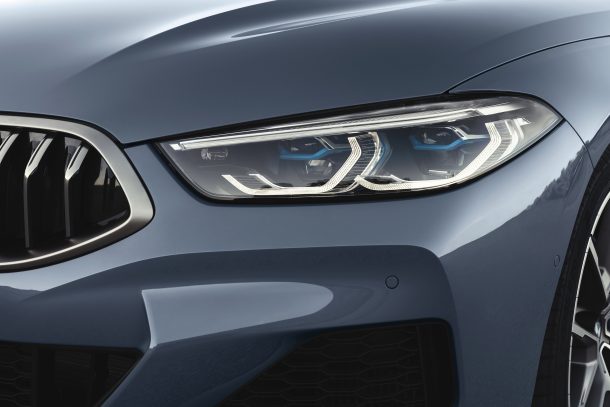

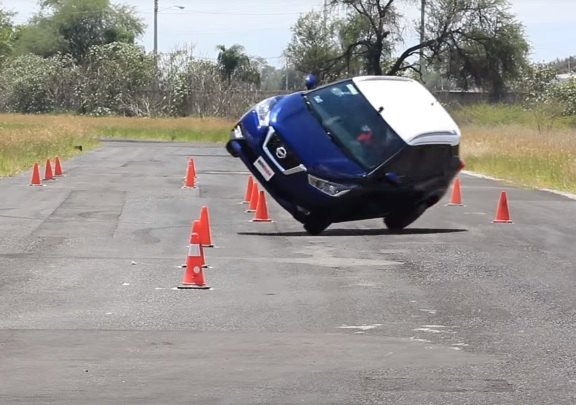
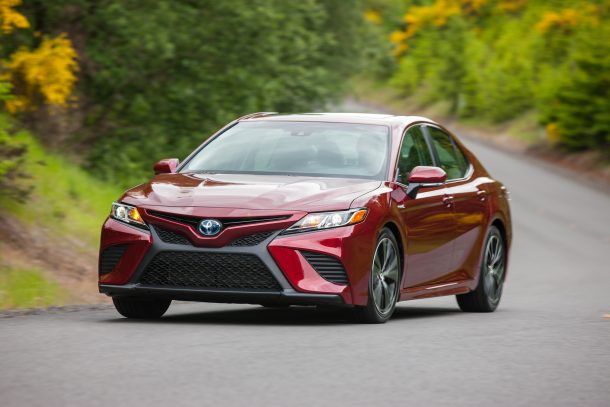







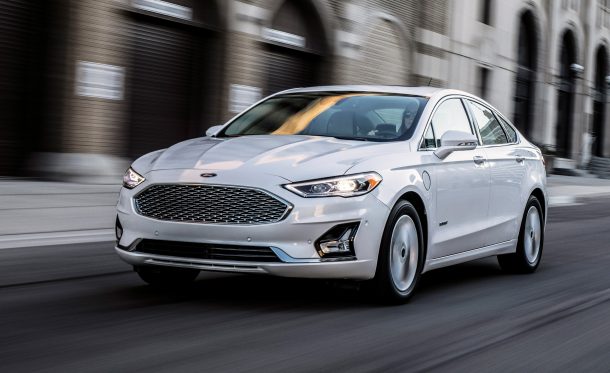


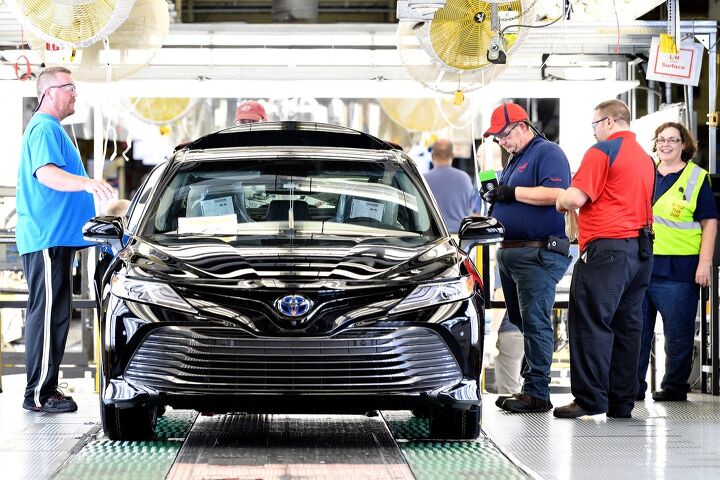






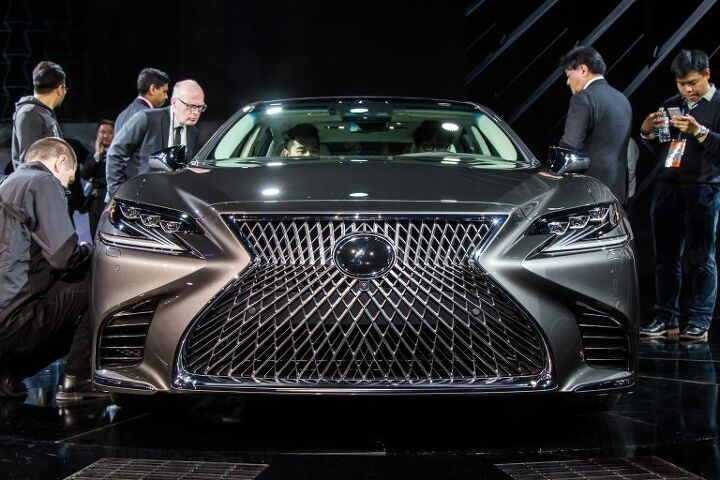



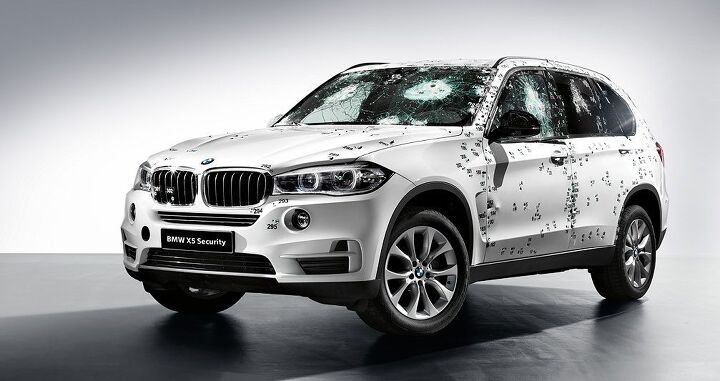
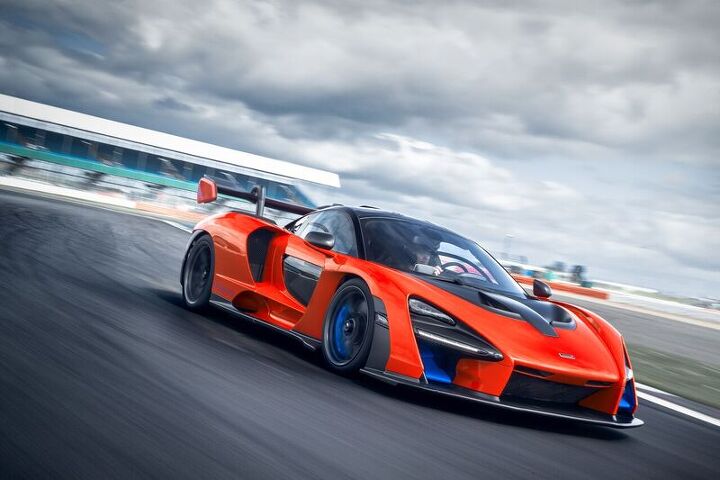


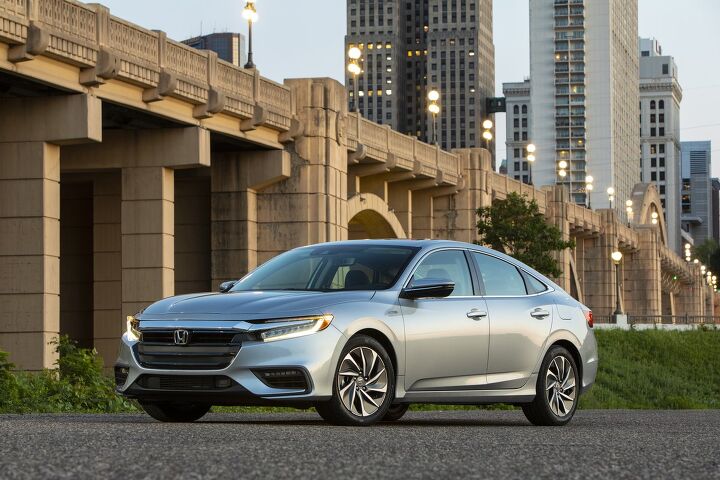
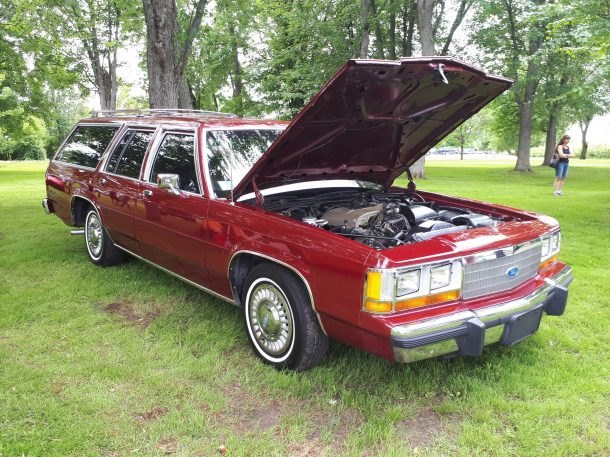







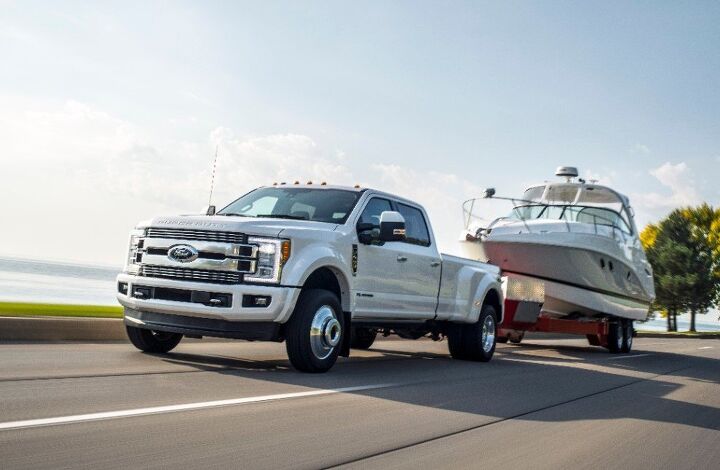








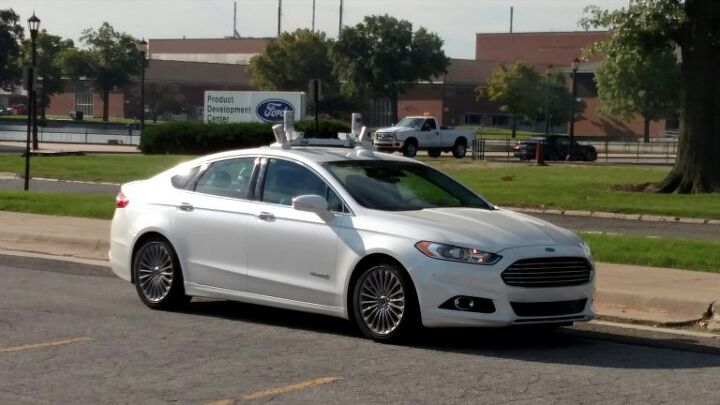

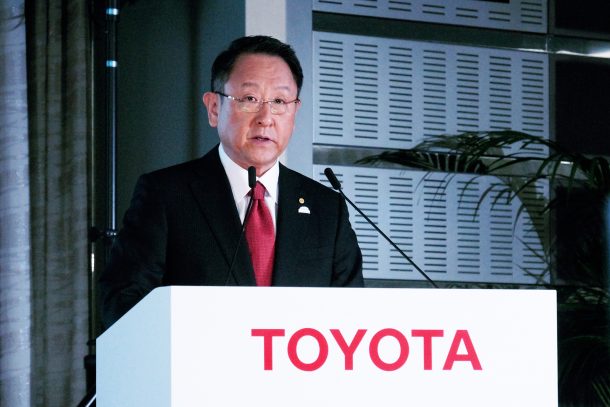

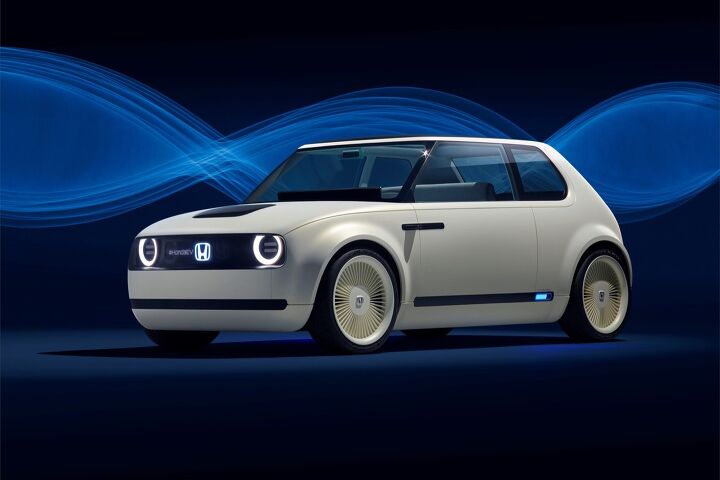



















Recent Comments